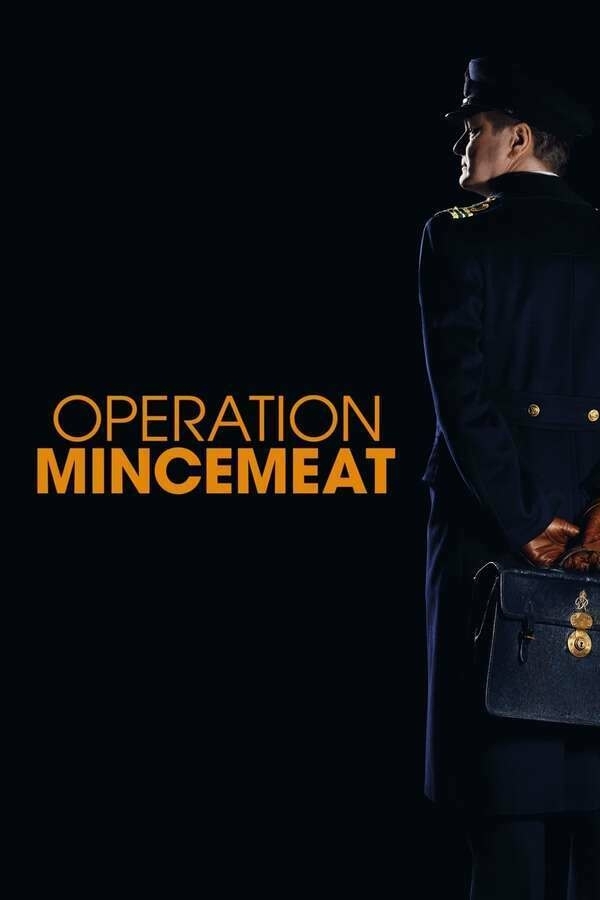Longform
Crucial Track for 11 May 2025: Walk on the Wild Side
"Walk on the Wild Side" by Lou Reed
I don't know whether I can honestly say this the song 'feels like home' to me, but I do recall once, long ago, arriving in Edinburgh from London, and walking up the Bridges with Transformer playing, and thinking it felt like coming home.
'Walk on the Wild Side' is the second track from Transformer to feature on Crucial Tracks, I note, but that's not surprising. I'd consider it a 'crucial album'.
📗 Books 2025, 10: The White Album, by Joan Didion
I read one of the pieces from this, ‘At the Dam’, on my MA course. It didn’t make a huge impact on me at the time, but enough to keep Didion’s name in my mind, and eventually to stir up enough interest for me to get this.
It’s a set of personal essays covering various events around the end of the sixties and the early seventies. It struck me, reading this, she’s kind of a gonzo journalist, or at least gonzo-adjacent, in that the often puts herself in the narrative. Which is good and proper in my humble opinion. Not as intense as HST, but still.
There’s a lot of good, interesting stuff here, including one piece that involves her hanging out with The Doors, waiting for Jim Morrison to arrive. It’s not much about music, though, and I don’t know why she chose to call it The White Album.
One minor annoyance about at least this edition is, although the front matter credits the various publications the pieces originally appeared in (Life, The New York Review of Books, etc), it doesn’t tell us which piece appeared where.
But that doesn’t detract from the pieces themselves.
Crucial Track for 02 May 2025: Sit Down
"Sit Down" by James
Which song would you use to introduce yourself to someone new?
Not sure this is a thing I've ever done in the musical kind of sense, but I guess somebody might say, 'Tell me a song you love,' or something. I could answer with 'Sit Down' by James, for sure.
I saw them live a ton of times in the late eighties/early nineties. They're probably the band I've seen most, along with The Pogues and The Fall. Including on my 25th birthday, headlining the Reading Festival. Actually The Pogues were on that day, too. Or so my memory says, even if the Reading histories don't.
An interesting thing about 'Sit Down' is that they released it as a single and it didn't do much. I saw the video a load of times on the old ITV Chart Show on Saturday mornings back when I lived in Walthamstow.
But like a year or so later they didn't just rerelease it; they rerecorded it, with reordered verses, and a more upbeat performance. Here's the original video on YouTube.
The new version, of course, became a huge hit.
Crucial Track for 1 May 2025: Mario Y Maria
“Mario Y Maria” by Butch Hancock
It’s annoying that the song I want to use for the prompt, ‘Share a song that tells a great story,’ isn’t found on Apple Music. It’s sitting right there in my music library being fantastic, ever since I ripped it from a cover CD from Uncut magazine, back in 2002.
It tells the tale of a pair of lovers that we might describe, in the clichéd form, as ‘star-crossed’. But it’s not a tale of young lovers. Rather, the titular pair are experienced, world-weary (certainly by the end), but they keep on keeping on.
I don’t know if creating this entry will even work with the song not found, but if it doesn’t, I’ll create the post manually. (It didn’t; I did.)
Masked and Anonymous, 2003 - ★★★½

I'd give it five stars for the soundtrack: all Dylan songs. The story is also all Dylan. And the lead actor: Dylan too.
Yes, in 2003, Bob Dylan wrote and starred in this film. In a country in state of constant revolution and war, with the dictator-president dying, a singer is released from prison to play a benefit concert. It's not clear why, but 'The Network' wants to broadcast it.
And Uncle Sweetheart, played by John Goodman, is hoping to get rich from it. It can't end well, and Jeff Bridges, as a journalist who talks a lot more than he writes, listens, or observes, is supposed to be uncovering the corruption.
It can't end well, and frankly it's a bit incoherent. Enjoyable enough though, and certainly interesting to the Dylan fan.
Incredible Story About the Smallpox Vaccine
Astonishing story in The Atlantic, about the smallpox vaccine:
At the heart of history’s most successful eradication campaign is a mystery. The smallpox vaccine—now also being deployed against monkeypox—contains a live virus that confers immunity against multiple poxviruses. But it is not smallpox or a weakened version thereof. Nor is it monkeypox. Nor is it cowpox, as suggested by the vaccine’s famous origin story involving pus taken from an infected milkmaid to immunize an 8-year-old boy.
The vaccine predates systematic, controlled manufacture, so several or many versions were made from various sources. And they were transferred by sending infected children around the world! I do seem to recall hearing that last part before, but not the fact that its true origin is shrouded in mystery.
Well worth a read. Via Kottke
Crucial Track for 30 April 2025: Death or Glory
"Death or Glory" by The Clash
I don't know if this song always makes me feel better, exactly, but I love it to bits and want it played at my funeral. So there's that.
Crucial Track for 29 April 2025: Hungry Heart
"Hungry Heart" by Bruce Springsteen
As far as representing my current mood goes, I'm actually just hungry. But Springsteen's 'Hungry Heart' is always a good choice. The story goes he wrote it for The Ramones, or at least was going to offer it to them. But he decided to keep it, and of course put it on The River.
That album — and most of his gigs since — wouldn't have been the same without it. But I'd still love to have heard The Ramones do it.
Crucial Track for 28 April 2025: The Prince
"The Prince" by Madness
Madness: At the heart of the ska revival of the eighties. I’d have gone to see them in Glasgow, on the Two-Tone tour, with The Specials and The Selecter, if it hadn’t been at an over-18s-only venue. I was 16.
Crucial Track for 27 April 2025: Ticket to Ride
"Ticket to Ride" by The Beatles
It’s interesting that, although I could give you various answers to the ’first single’ question, I don’t actually know what the first album I bought was.
Still, it’s bound to have been a Beatles one. So let’s go with the Red Album, and ‘Ticket to Ride’.
Crucial Track for 26 April 2025: I'm So Free
"I'm So Free" by Lou Reed
Lou Reed is one of my all-time faves, both with the Velvets and solo. This one popped into my mind this morning as we were walking back from badminton (playing the game, not the place where they have horsey things). It’s from the mighty Transformer album.
Crucial Track for 25 April 2025: Baby, I Love You
"Baby, I Love You" by Ramones
First love, eh? 'Music was my first love,' as an old song has it, 'And it'll be my last.' But that's not what this is about, really, is it?
Let's go with The Ramones (they were going to turn up some time, in one or another form, of course), where they made it on to Top of the Pops. Maybe because Phil Spector was at the controls, though we'd have to hope not.
Crucial Track for 24 April 2025: Leonard Cohen
"Leonard Cohen" by boygenius
'What is your favorite song from last year?' I am asked by the daily prompt from Crucial Tracks.
'Favourite,' I say. The 'favorite' spelling reads like a made-up element from thirties SF, or some such.
But I'm avoiding the question. The thing is, what this tells me is, I don't listen to much new music these days. Or, when I do, it doesn't impinge, doesn't resonate with me, become something I go back to.
I spent a chunk of 2024 listening through a list from The Guardian, of the 50 best albums of 2023, in order to check out what was good and recent. I had already heard the PJ Harvey, the Gina Birch, and the Boygenius albums, all of which I liked.
None of the others made enough of an impact to count, sadly. That is, none of them got a second play. One, I think, I gave a decent chance, but couldn't even finish.
And anyway, they were all new works from the year before last, not last year.
So for the purposes of this prompt, I'm allowing 'new to me' to count. And while I love PJ Harvey, so you might expect one of hers to make the cut, I Inside the Old Year Dying is too much an album. It's its own unique thing, but I don't recall a specific standout track from it.
So I'm going with Boygenius and, in another acknowledgment of my lack of new-music-attention, their one that namechecks an old singer — one of my favourites.
Crucial Track for 23 April 2025: Paradise by the Dashboard Light
"Paradise By the Dashboard Light" by Meat Loaf & Ellen Foley
I did not sing along to anything today, as the daily prompt asks. But I did find myself singing this Meat Loaf ditty, at least in my head. Maybe aloud, who knows?
Interesting that it appears as by Meat Loaf & Ellen Foley. Entirely appropriate, as it's a duet. But I don't think it was originally billed that way, and the modern approach would be to include 'Feat Ellen Foley' right in the title text. As I wrote about several years ago in Little, Feat...
One to One: John & Yoko, 2024 - ★★★★★

Oh my god, this film. This film is so, so good. Fantastic footage and sound from a gig that I've never even heard of before (though I think I've seen some of the footage). Great extracts from TV news broadcasts of the time, all sorts of great stuff.
Turns out there was an asylum/hospital/children's home kinda place where hundreds of kids with learning disabilities and other problems were kept in horrific conditions. Seeing the footage of it, I was reminded of the Romanian orphans that led JK Rowling to set up her Lumos charity.
John & Yoko learned about the place back in the day and set up the titular One to One benefit concert, raising money to help to provide better lives for those kids.
The strangest thing is that I've never heard about this concert before.
I will be watching this film again, you can be sure.
Crucial Track for 22 April 2025: No More Heroes
"No More Heroes (1996 Remastered Version)" by The Stranglers
Today's prompt is 'Share a song that changed your perspective on music.'
I'm gonna have to go back to 1977 for this one. That year may not surprise you, being as it was the core of the original punk days.
I was 13, as of August. 'No More Heroes' came out in September, Wikipedia tells me. I can't tell you when I first heard it, but I do know it was on a Sunday afternoon, after a week in which my friend Brendan had strongly urged me to get into punk.
It came on the radio, and it was the first punk song I heard.
The Stranglers were less punky than the Pistols, Clash, Damned, etc, of course, being older and to some extent, bandwagon jumpers. But who gave a fuck about that when they made a song as good as this?
Operation Mincemeat, 2021 - ★★½

This has a slightly interesting connection to home for me. Just last week we were walking past St John of Hackney churchyard, a common route from the Narrow Way home, when we stopped to look at a plaque outside the Hackney Mortuary. It describes the top-secret military operation the film is named after. The dead body that was used to deceive the Nazis was stored at the mortuary for three months. You can see a picture of the plaque at the Wikipedia page for the mission.
So why not watch the film? It's an interesting story, it's got an impressive cast, and it's on Netflix.
Good thing about that last, because we'd have been mildly annoyed if we'd had to pay extra for it. Trouble is, it's not very good.
It's not terrible. Two-and-a-half stars from me means it's OK, but just barely. On another day I might have given it three. The problem might be with us: knowing the story in advance could remove all tension, except from the romance subplot. But no, I think that was OK. I think it's more that sometimes the various parts of a film — which is a complex thing to create, after all — don't come together well enough, for reasons that are hard to define.
Crucial Track for 20 April, 2025: Ob-La-Di, Ob-La-Da
"Ob-La-Di, Ob-La-Da" by The Beatles
My earliest musical memory might be this. I was well under five, maybe only three. My gran — my mum’s mum — was staying with us because she wasn’t well. I walked into her room with my big sister, singing.
Says gran, ‘Is he swearing?’ My sister had to explain that I wasn’t saying, ‘Oh bloody’ something.
Crucial Track for 19 April, 2025: London Calling
"London Calling" by The Clash
It seems wildly unlikely that I — or indeed, anyone — could have a single ‘favourite song’ throughout high school. Not least since ’high school’ itself is not a commonly-used term here in the UK. Though my secondary school did actually have ‘High School’ in its name.
Secondary school lasts six or seven years, though (true, back then, some got out after four, but even so). Who’s going to keep the same fave for that long, especially during such formative years?
At the start, if I had a single fave, it would have certainly been by The Beatles. By the end it would have been The Clash or Stiff Little Fingers.
So let's go with 'London Calling', a Clash song that mentions The Beatles, albeit negatively: 'phony Beatlemania has bitten the dust.'
Crucial Track for 18 April, 2025: Another Girl Another Planet
"Another Girl Another Planet" by The Only Ones
What is a song that instantly energizes you?
I feel I should answer that with something relating to Star Trek, but that’s the wrong kind of ‘energize’ (or ‘energise’, as I would spell it).
Although ‘Another Girl, Another Planet’ does sound like it could be about Captain Kirk.
I’ve heard it described as Peter Perret’s love song to heroin, but also seen a more recent interview where he said it wasn’t about that.
Anyway, if you want to get me on the dancefloor, this one’s chugging intro is always a good bet.
‘Space travel’s in my blood,’ after all.